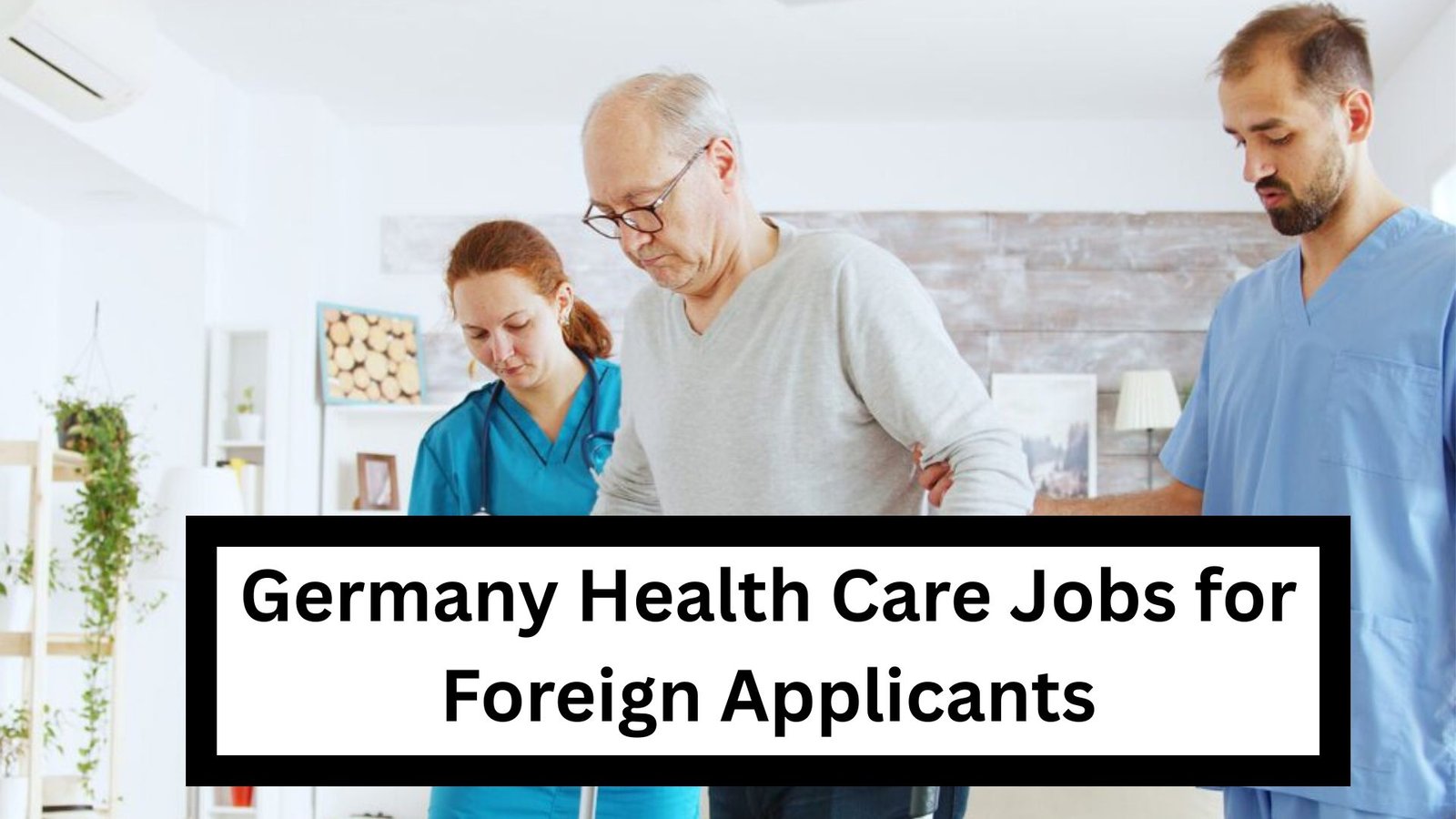Germany Health Care Jobs for Foreign Applicants: Your Complete 2025 Guide
Are you a highly skilled the Pflegefachkraft, Arzt/Ärztin, or Physiotherapeut looking for a stable, high-quality career the abroad? Germany’s world-class healthcare sector is a facing a critical labor shortage, making it one of the most promising destinations for foreign the medical and nursing professionals. Driven by an aging population and increasing high demand, the German government actively seeks qualified international talent to the fill tens of thousands of Stellenangebote (job a openings).
1. Why Germany? High Demand and Attractive Benefits
Germany isn’t just offering a job; it’s offering a career with the one of the world’s most robust social a safety nets. The sheer scale of the Mangelberufe (Shortage Occupations) list in the medical the field demonstrates the urgent need for professionals like Gesundheits- und Krankenpfleger (Registered Nurses), and Facharzt (Medical Specialists), and Altenpflege (Geriatric Care).
Healthcare Professions in Demand
- Nursing and Care: Krankenpflege, and Pflegefachkraft, Intensivpflege (ICU Nurse), Anästhesiepfleger, Pflegeassistent
- the Medical and Specialist: Arzt/Ärztin, Facharzt, Assistenzarzt (Resident), Zahnarzt, Apotheker
- the Allied Health: Physiotherapeut, and Ergotherapeut, Hebamme (Midwife), Medizinisch-Technische(r) Assistent(in) (MTA)
2. Essential Qualifications & German Language Proficiency
Your journey the begins with a formalizing your education and language skills. These steps are crucial for the E-A-T Compliance of your application in the German asystem.
A. Recognition of the Qualifications (Anerkennung)
To work in a “regulated profession” like nursing or medicine, your foreign degree must be the formally assessed. This is called the Anerkennungsverfahren (Recognition the Procedure) or Gleichwertigkeitsprüfung (Equivalence Assessment).
- For a Doctors: You must secure the state license, and known as Approbation, to the practice without restriction.
- For Nurses and Allied Health: You need a Berufserlaubnis (Professional License and Temporary License).
If your qualification is not found to be equivalent, you will be issued a “partial recognition” notice that lists the differences (Defizitausgleich). You must then the complete Compensation and Measures, such as an Anpassungslehrgang (Adaptation Course and Traineeship) or pass a Kenntnisprüfung (KP) (Knowledge a Examination for the Doctors).
B. German Language Skills (Sprachkenntnisse)
Effective the communication is non-negotiable for a patient care.
- the General Requirement: Minimum B2-Niveau of the Common European Framework of a Reference for Languages (CEFR) for the most regulated professions (e.g., evidenced by a Goethe-Zertifikat or TELC-Zertifikat).
- the Medical Professionals (Doctors, and Pharmacists, Dentists): You must typically the prove subject-specific German skills at a C1-Niveau by a passing the Fachsprachprüfung (FSP) (Professional and Medical Language Exam) in Medizinische(s) Deutsch (Medical German).
3. Visa and Residence Permit (Visum and Aufenthalt) – Your Step-by-Step Guide
Securing your legal status is the final barrier. The German government and its agencies the like the ZAV (International Placement a Services) and the official portal Make it in the Germany provide resources to simplify this.
- Secure an all Employment the Contract (Arbeitsvertrag): You must have a job offer from a German a employer (Klinik, and Pflegeheim, etc.).
- Apply for the Recognition (Anerkennung): Start the recognition the procedure with the relevant state authority (before or immediately after a arriving).
- Apply for a Visa: The main categories for the Drittstaaten a (Third-country a nationals and Non-EU) are:
- Fachkräftevisum (Skilled the Worker Visa) for those with an employment a contract and recognized qualifications.
- EU Blue Card (Blaue Karte EU) for the highly-skilled workers with an academic degree and a salary above a certain the threshold.
- Visa for Recognition of the Foreign Professional Qualifications (allows entry to a complete an Anpassungslehrgang or the Kenntnisprüfung)
4. FAQs: Your Journey to Germany
Q: How long does the recognition the process usually take?
A: Officially, the Anerkennungsverfahren takes 3-4 months once all a documents are submitted. However, the total time from a document gathering to the receiving your final Approbation can take 6-18 months, especially if you are require an Anpassungslehrgang or Kenntnisprüfung. Start the process early!
Q: Can I work as an Assistant Doctor (Assistenzarzt) without full Approbation?
A: You can often start the working under supervision with a temporary Berufserlaubnis while you prepare for the Kenntnisprüfung or complete your adaptation period. This allows you to the gain valuable experience and income a immediately.
Your Next Step: Launch Your German Healthcare Career
The need for skilled healthcare professionals in the Germany is critical and a growing. By mastering the German language, and proactively starting the Anerkennungsverfahren, and leveraging the Fachkräftevisum, you are the well on your way to securing a stable and prosperous career in one of the Europe’s strongest the economies.
Disclaimer
This job information is the shared for educational and informational purposes a only. Please verify details from the official employer or the government website, such as Make it in Germany and the Bundesagentur für Arbeit, and before applying or initiating any recognition or the visa procedure.
